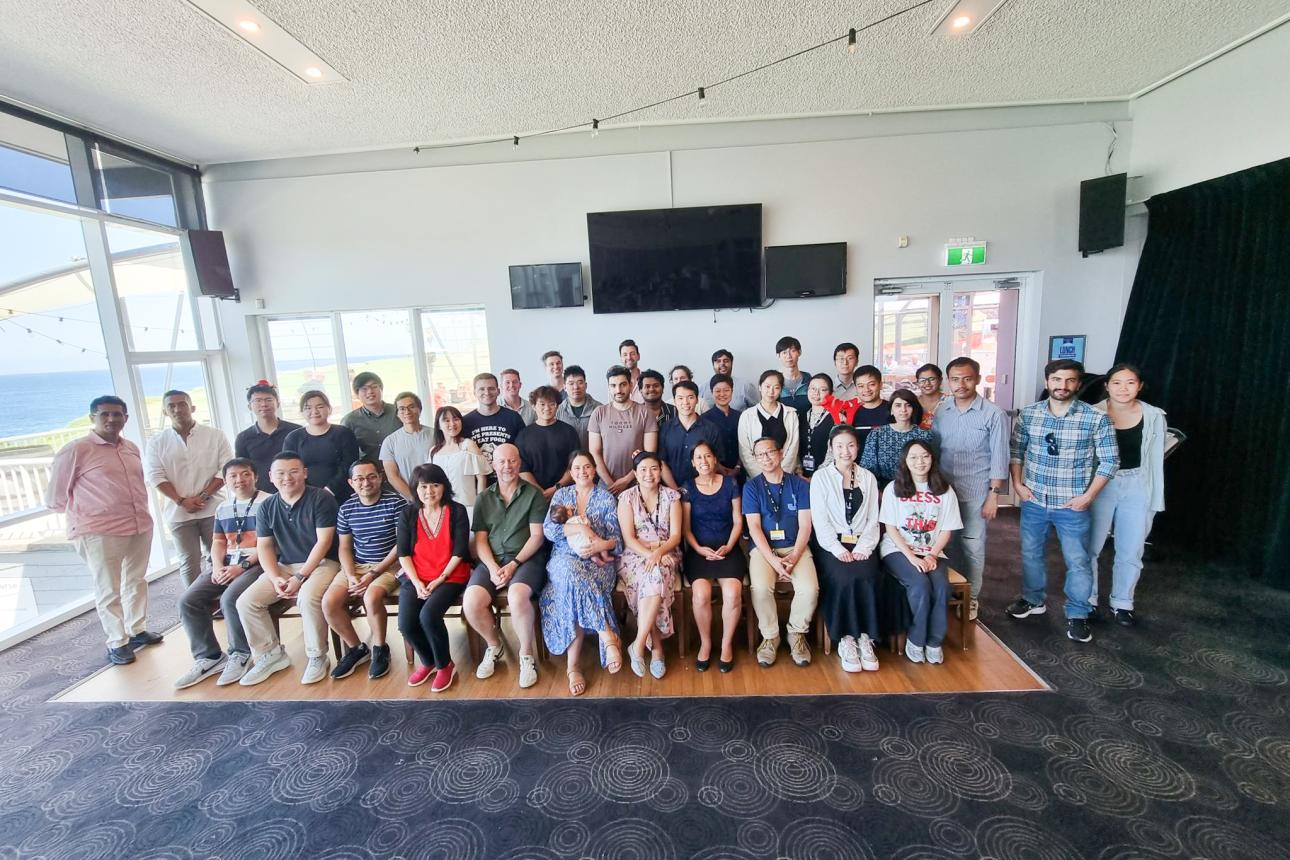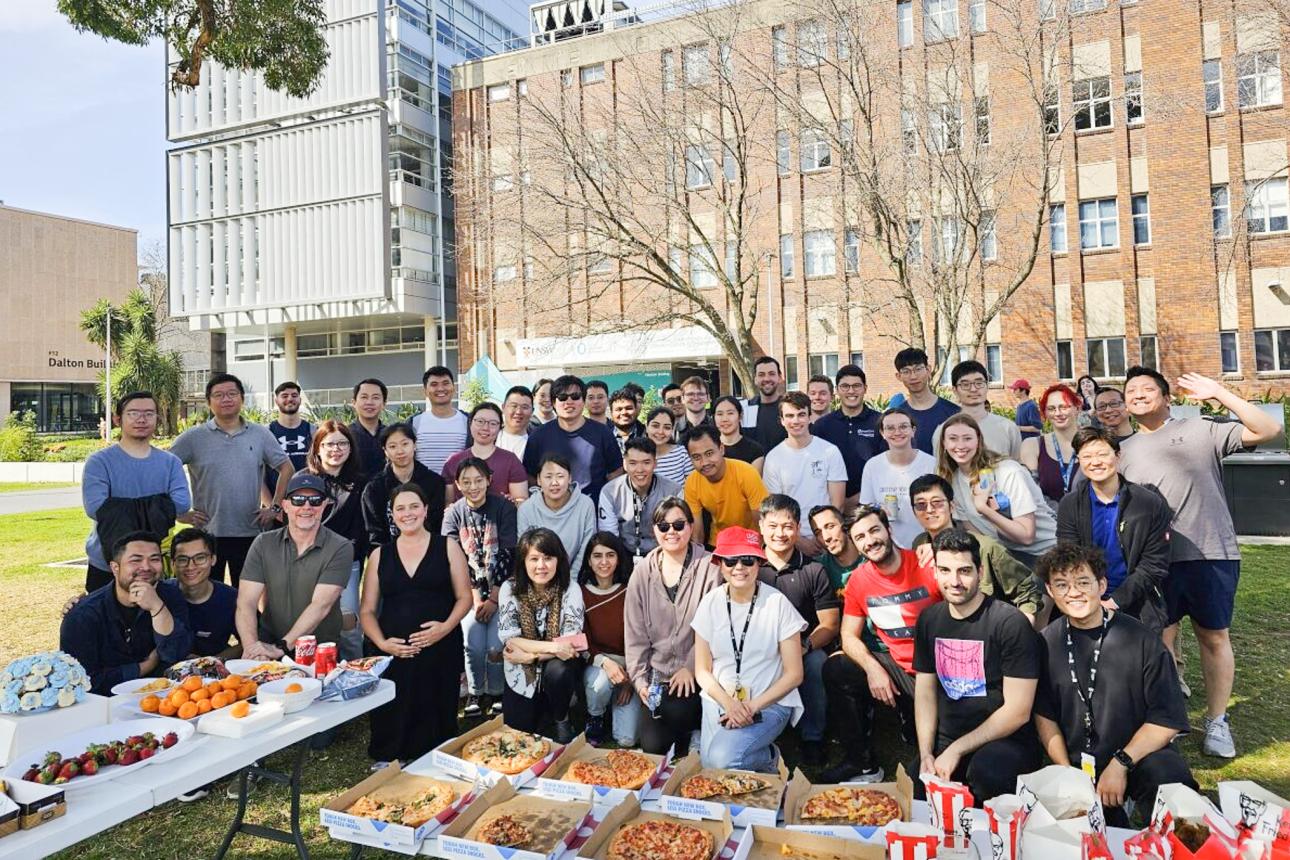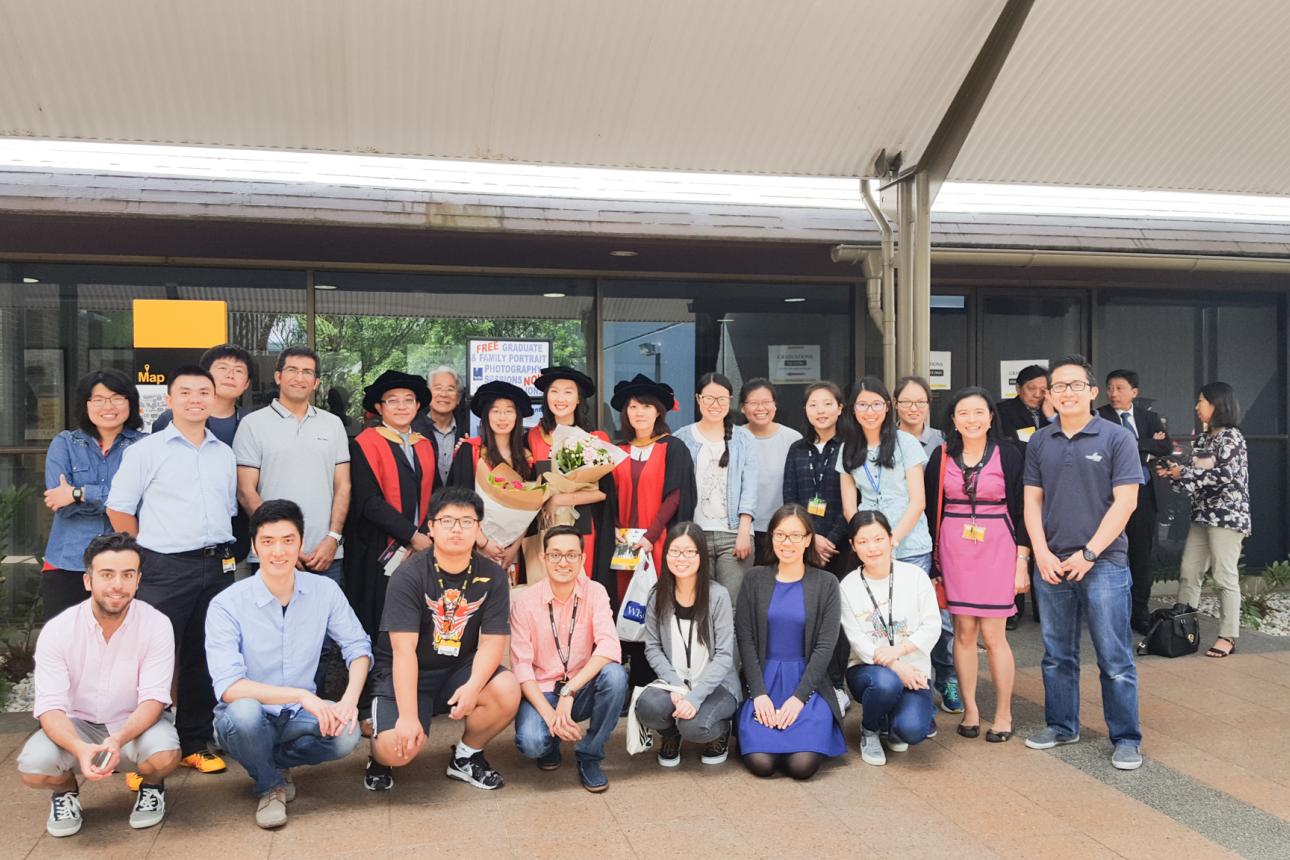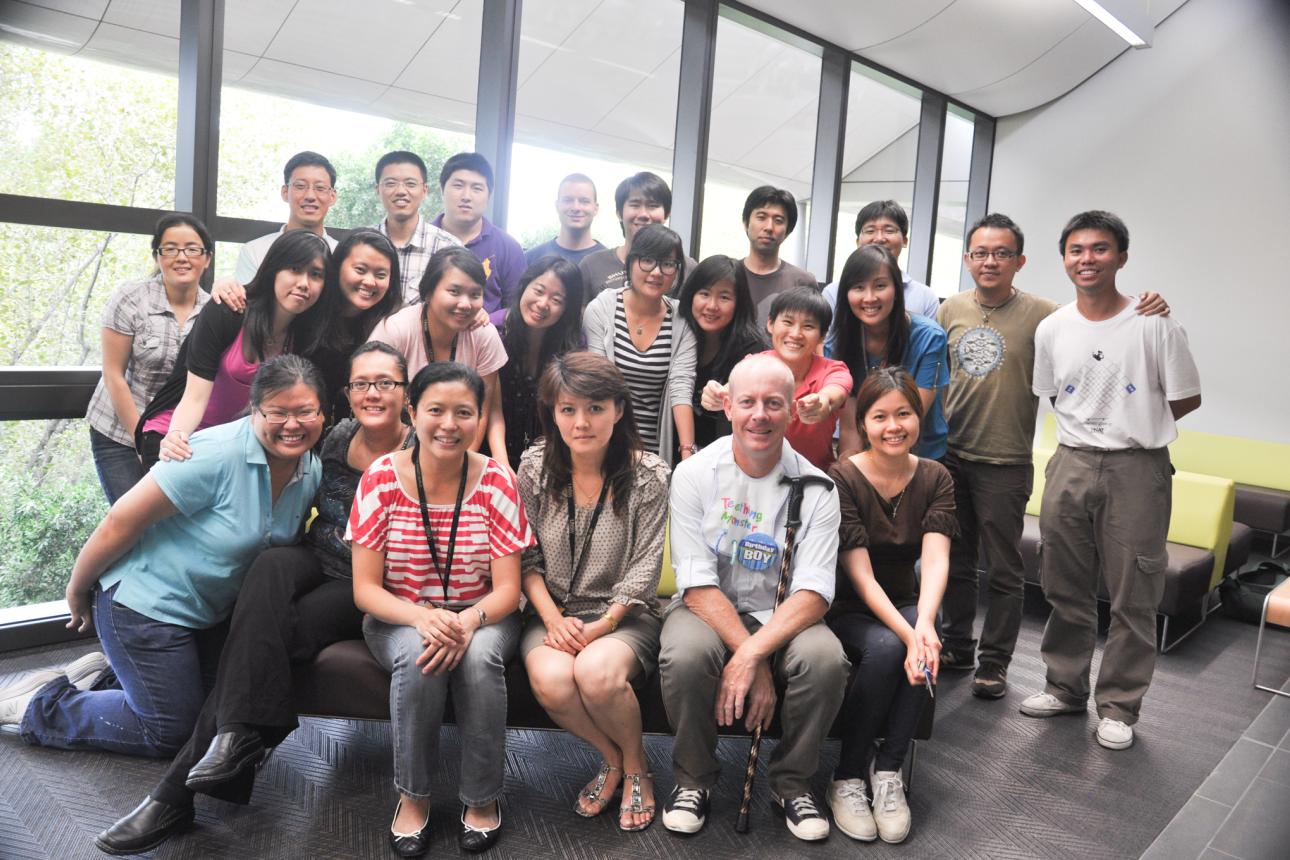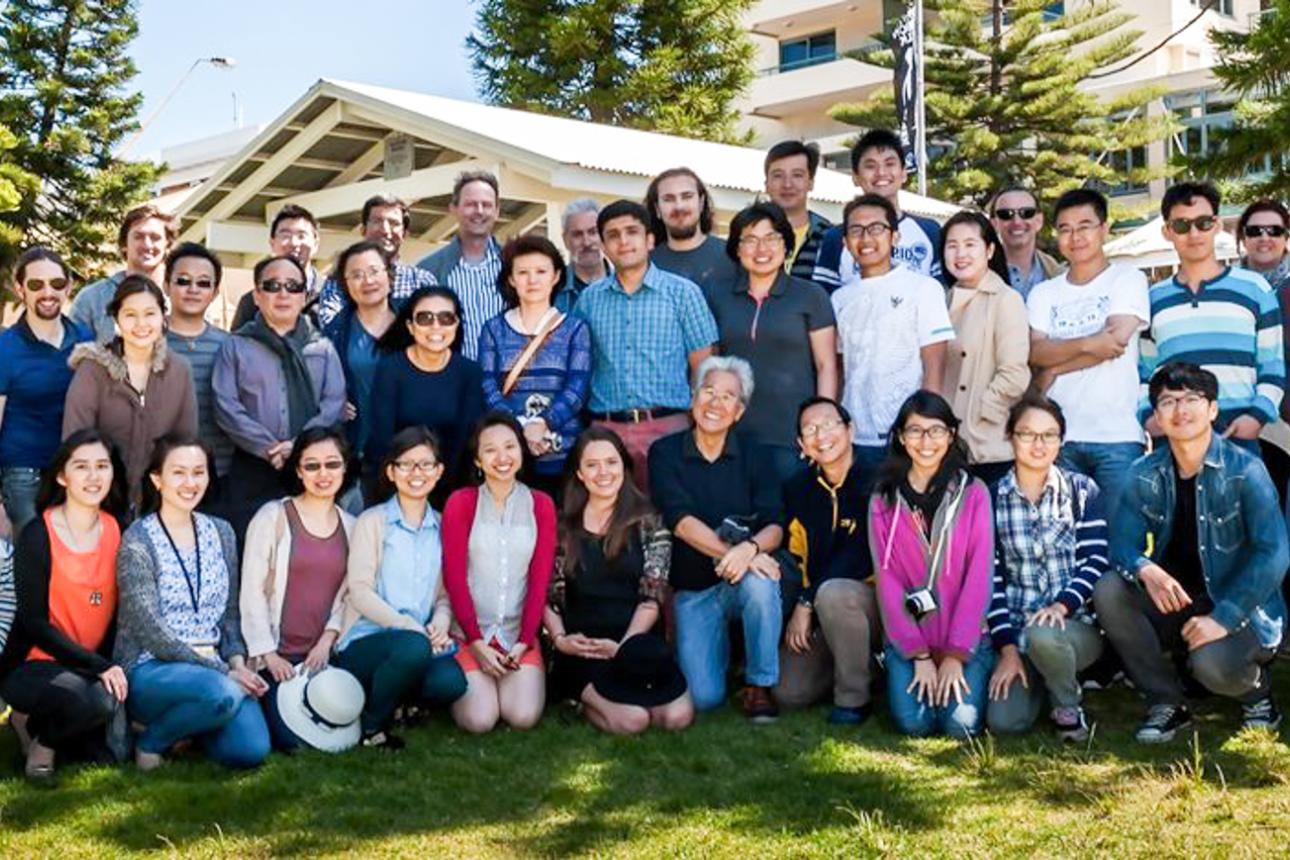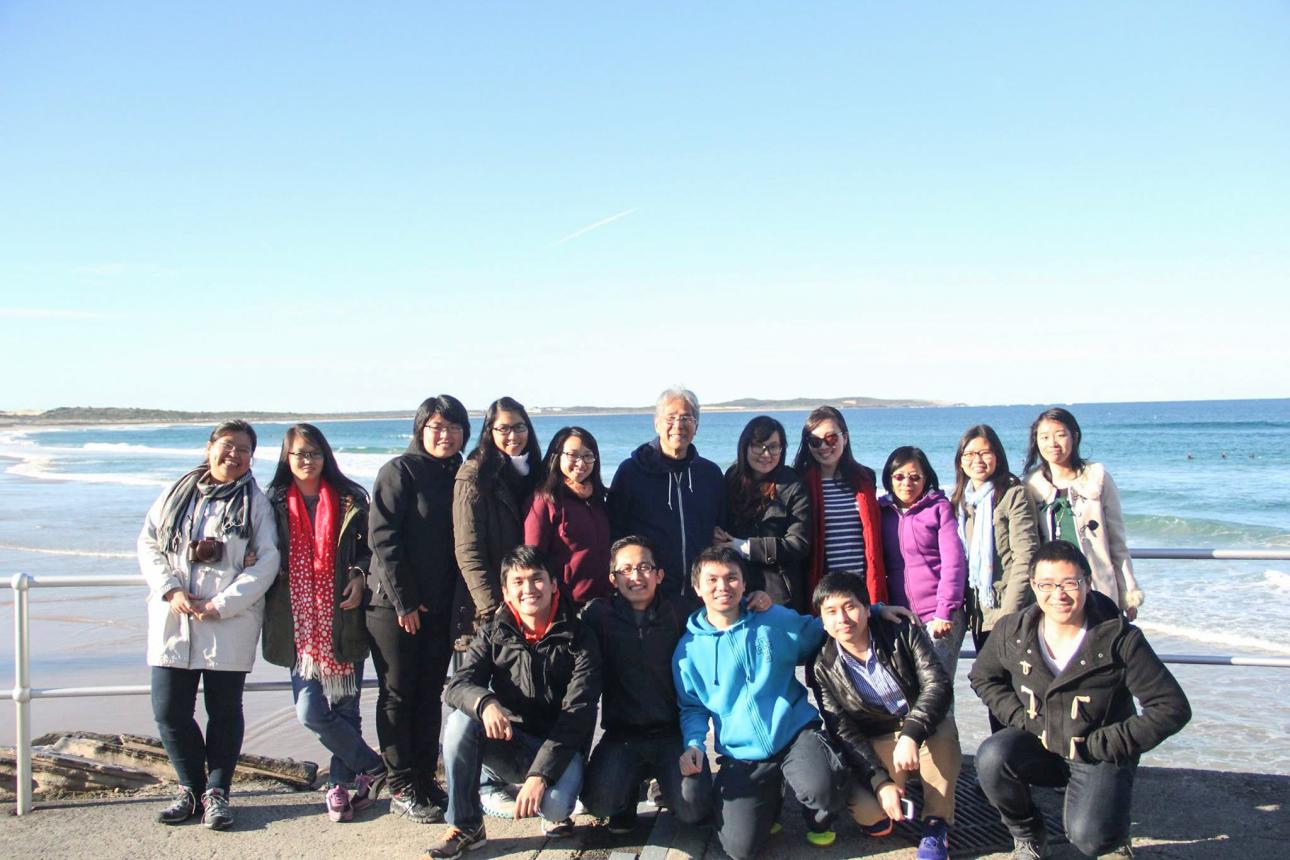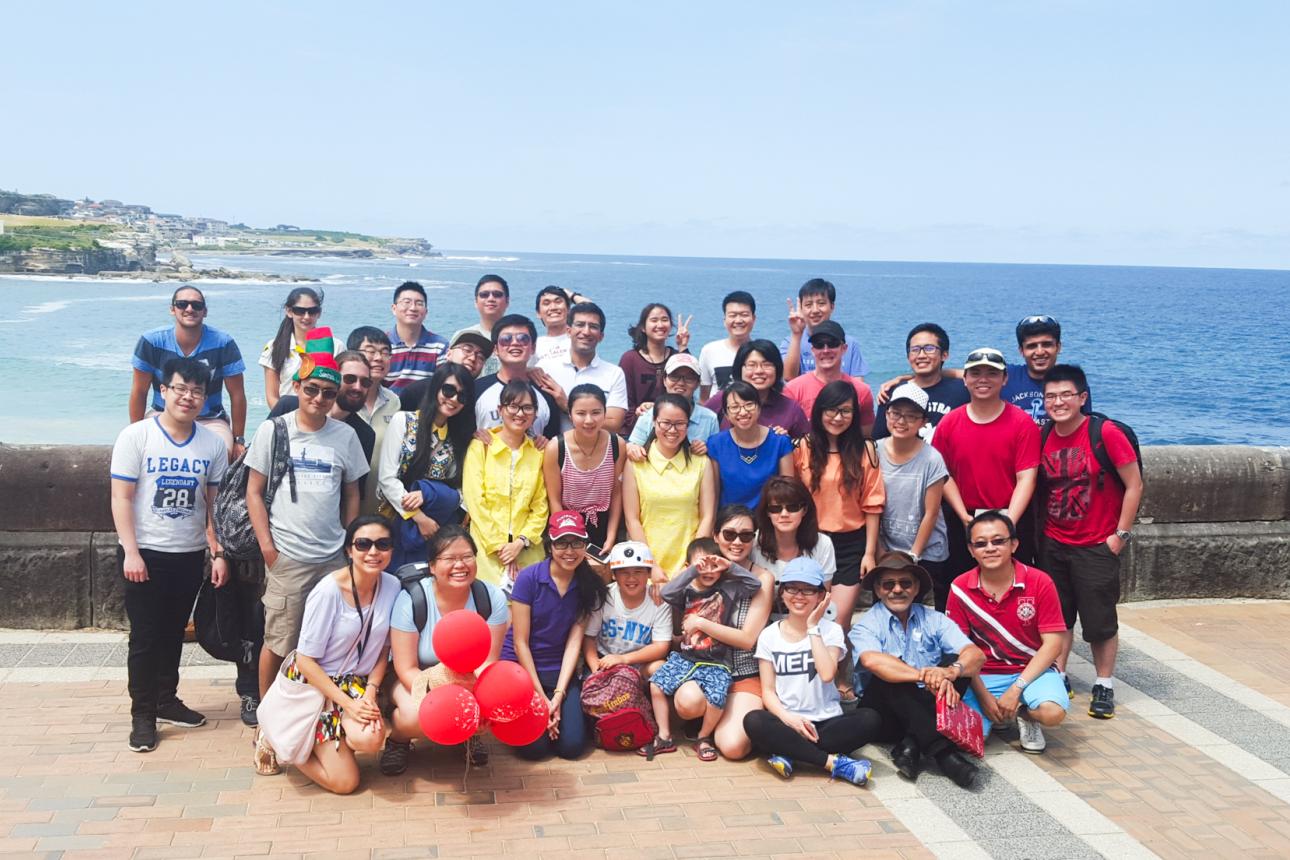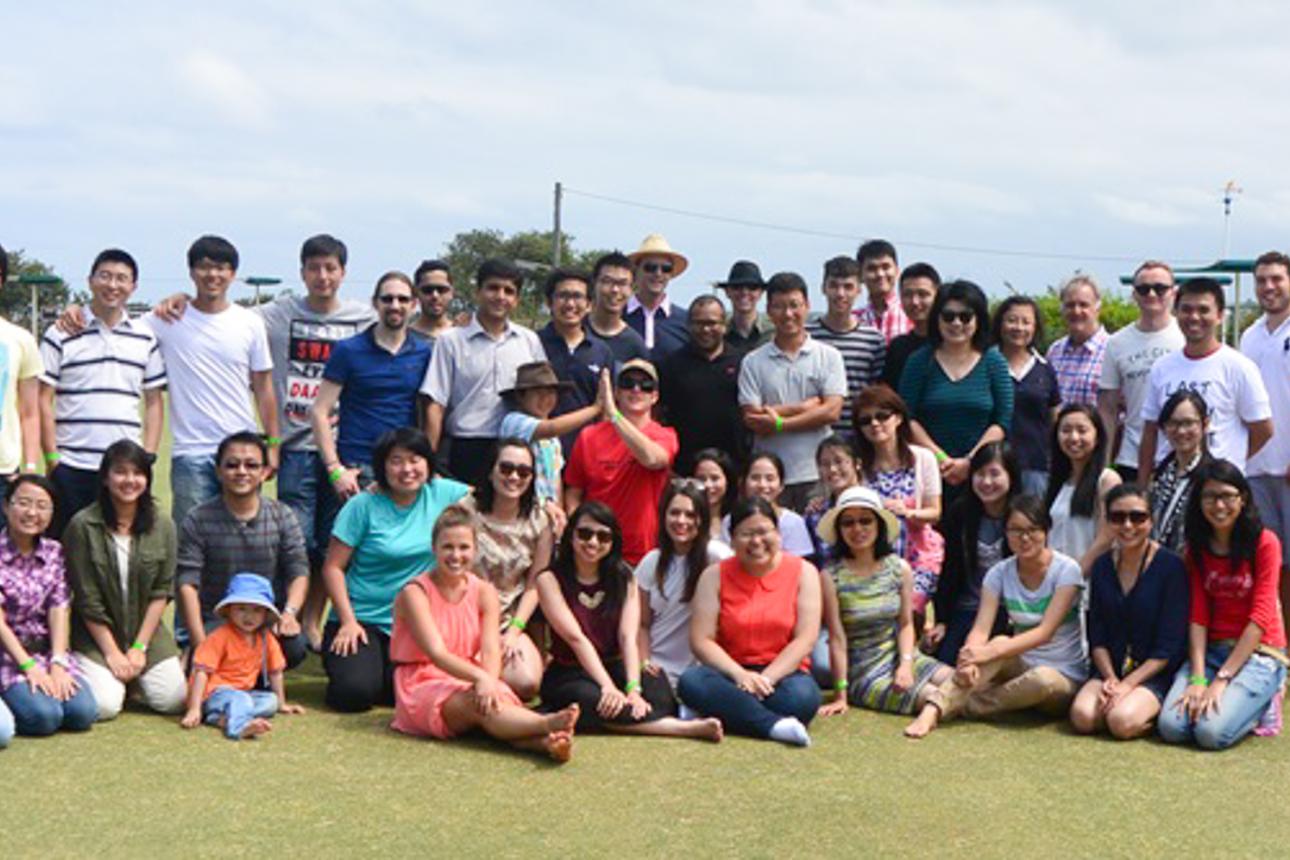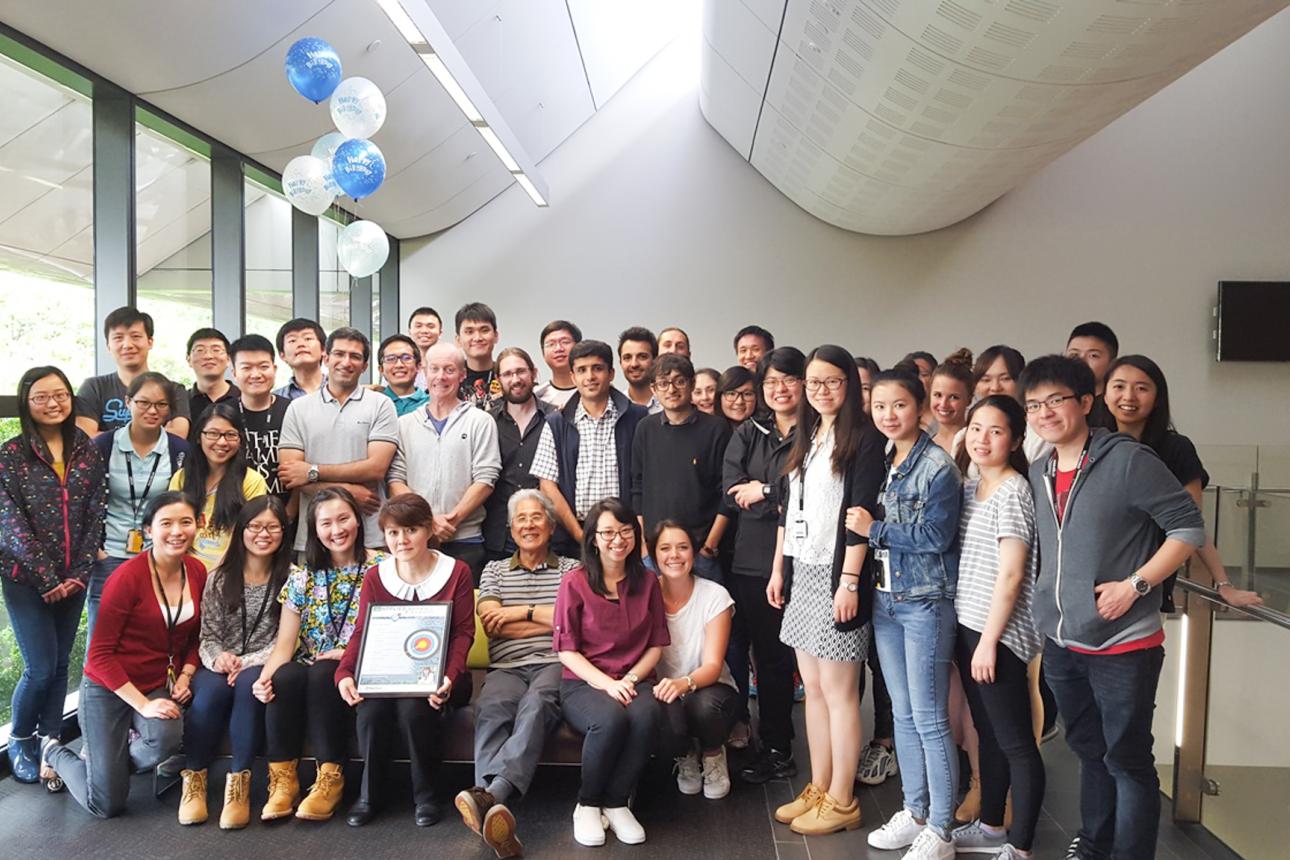The Particles and Catalysis Research (PartCat) Laboratory is a world leading research group working at the interface of the fields of nanoscale materials, catalysis, renewable energy, sustainable environment and circular economy in the School of Chemical Engineering at UNSW Sydney. It was established in 1991 within the School of Chemical Engineering at UNSW by Professor Judy Raper, Emeritus Professor Mark Wainwright and the late Professor David Trimm. PartCat has graduated and mentored over 100 HDR students over the years and has grown to become a prominent catalysis research group in Asia Pacific under the leadership of Scientia Prof Rose Amal.
People
At the heart of the PartCat lab, our greatest asset is our people. We believe that fostering a culture centered around individuals is the key to our success. From collaborative workspaces to supportive leadership, we prioritise the wellbeing and growth of our team. Our commitment to people extends beyond the workplace - it is ingrained in every decision, innovation, and success.
PartCat Laboratory
The Particles and Catalysis Research (PartCat) laboratory is a leading (photo(electro))catalysis research group within the School of Chemical Engineering at the University of New South Wales. The PartCat lab, evolved from the Centre for Particle and Catalyst Technologies, was formed by Associate Professor Judy Raper in 1991, with Professor Mark Wainwright as its initial Director, to develop new technologies for improving the performance of industry.
In 1997, when Professor Judy Raper left UNSW to become the Dean at the University of Sydney, Professor Rose Amal became the Director of the Centre and then leader of the lab (now). In 2003, the PartCat centre became part of the ARC Centre of Excellence for Functional Nanomaterials (where Prof Amal was the Director), reflecting the centre’s significant contribution to the early days of nanomaterials research in Australia.
Since 2003, the lab has been awarded more than $15 million AUD in research funding and has gained a notable international reputation. The group has many great and diverse research and industrial links with Switzerland, Germany, the United Kingdom, USA, Japan, Korea and many other countries.
Our research specialises in fundamental synthesis, functionalisation, characterisation and application of novel particle and catalyst system. The focus of our research is on the fundamental understanding of particulate systems and processes through basic and applied research.
We apply a holistic approach to the design, discovery and characterisation of new particulate materials, and use them for catalytic and photocatalytic process, environmental remediation, clean energy production and utilisation and health care.
Today PartCat supports around 30 postgraduate students and postdoctoral researchers working on a variety of research projects, mainly funded through the Australian Research Council Discovery and Linkage Programs. Since its establishment in 1991, PartCat has published more than 300 refereed papers and supported and mentored more than 100 honours, master’s and PhD students from more than 10 countries. It is one of the key centre for (photo(electro))catalysis and nanomaterials research in Australia.
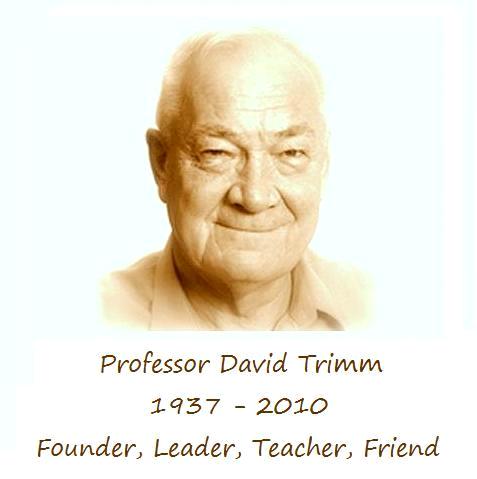
Professor David Trimm has contributed to the study of catalysis for almost five decades. He was the first to study the mechanism of carbon formation on metal catalysts and then became the leading authority in gas processing and synfuels in Australia.
Prof. Trimm was born in England on 27th April 1937. He graduated from University of Exeter major in chemistry with first class honour and got his PhD in radical oxidation in 1961 from the same university. After a postdoc period at Imperial College (1961-1962) and at University of Chicago (1962-1963), he came back to Imperial College as lecturer in Catalysis in the Department of Chemical Engineering and Chemical Technology (1963-1976). He was then appointed as Professor of Petrochemistry at the University of Trondheim, Norway in 1976 before he move to Australia in 1979 to become the Head of School of Chemical Technology of University New South Wales.
Professor David Trimm provided great leadership as head of the school, which had been formed by the merger of the school of chemical engineering and the school of chemical technology. He started to build an outstanding research team and wrote “Design of Industrial Catalysts – Chemical Engineering Monographs" (Elsevier,1980). His achievements in catalysis are reflected by a large number of papers (286) many of which are highly cited.
His professional interests have been focused on aspects of heterogenous catalysis and on steam reforming catalysis and catalytic combustion. He has been the Regional Editor for the international journal of Applied Catalysis since the journal was established until 1998 and on the Editorial Board of every international applied catalysis journal. Prof Trimm was one of the founders of the Natural Gas Conversion Symposia (NGCS) and he was also behind the APCAT conferences and instrumental in creating APCAS organization (Asia-Pacific Association of Catalysis). He brought research in heterogenous catalysis and catalytic processes in Australia to international recognition.
In recognition of his achievement, Prof. Trimm has been awarded many awards among them are: Distinguished Fellow, Royal Australian Chemical Institute (only four have been appointed to date), Applied Research Medal (RACI, 1988); Murphy Medal (RACI, 1997), Member of the Order of Australia for excellence in research and teaching (1998), Scientia Professor (UNSW, 2001), ARC Federation Fellow (2002), CSIRO fellowship – the highest award in CSIRO (2007).
Like many who miss him says “David was strict on scientific principles but had a great heart when dealing with people. He was an inspiring team leader and with his sense of humor and his charm, he was able to create a strong worldwide network of friends, many of whom have enjoyed his and Gabi’s hosipitality in their home at Watson Bay”.
David's legacy in Catalysis continues with the "David Trimm Catalysis Award" - An award for best paper in Catalysis by a student, presented annually at the Chemical Engineering Conference (CHEMECA conference).
Photo gallery
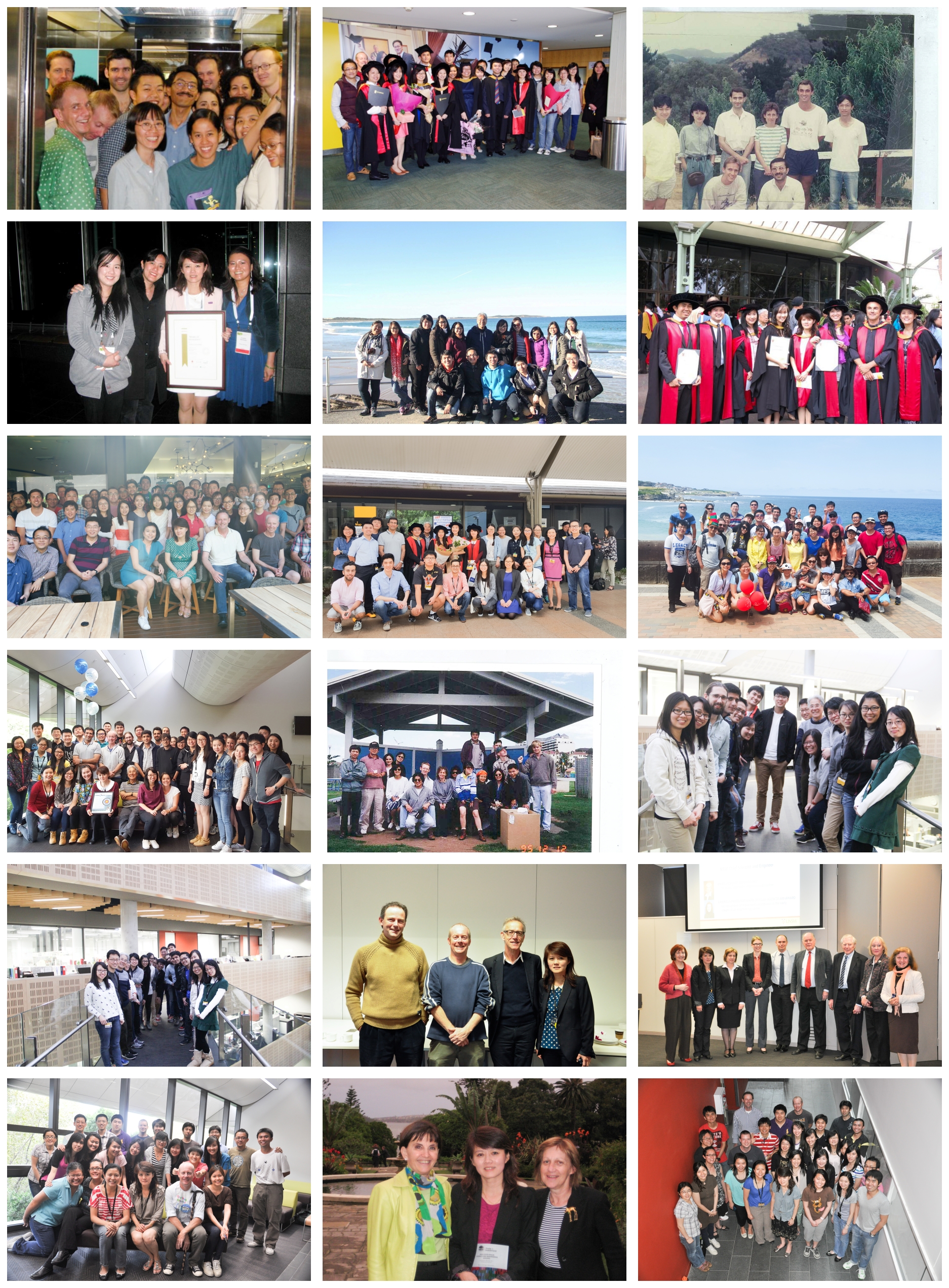
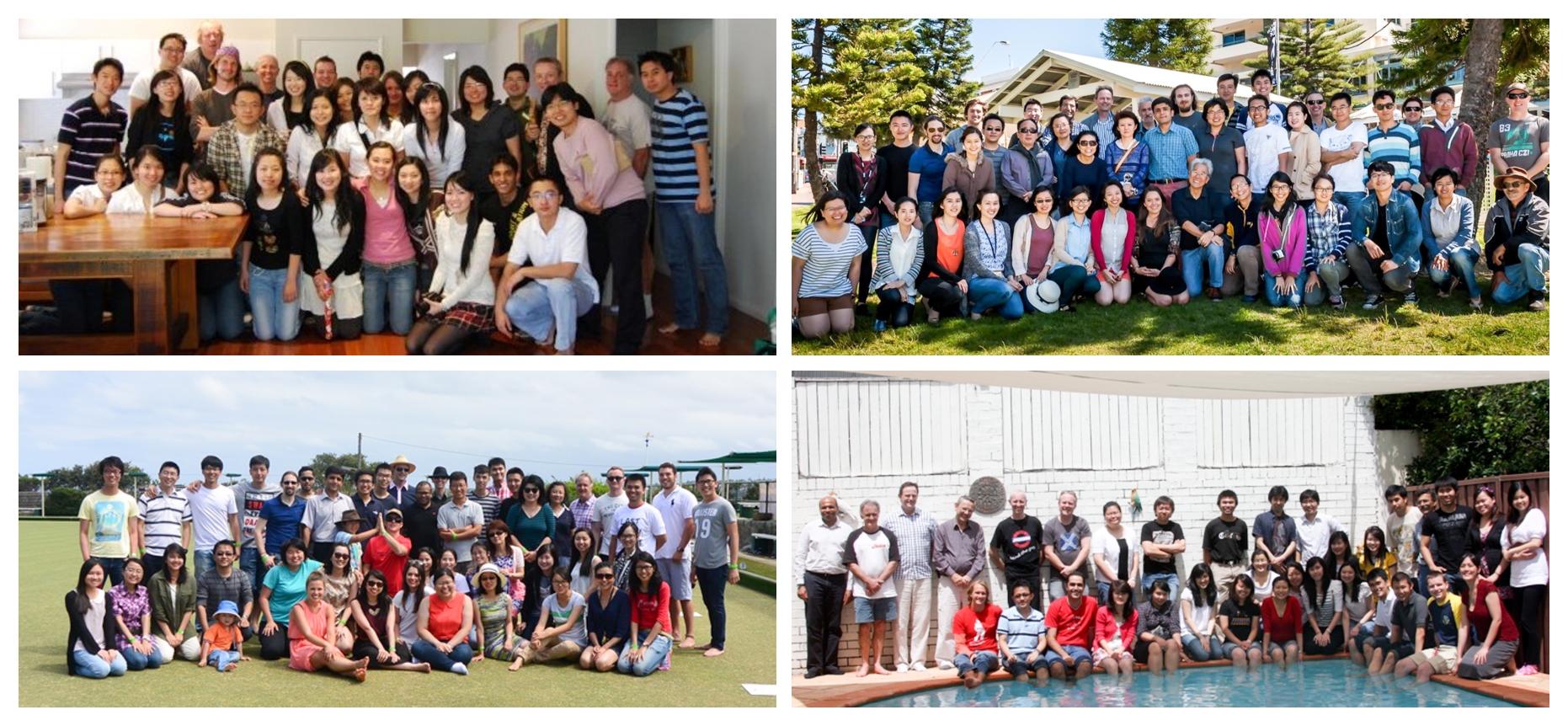
Interested to join us?
There are many ways to engage with the PartCat lab. Contact us to find out how we can collaborate.

